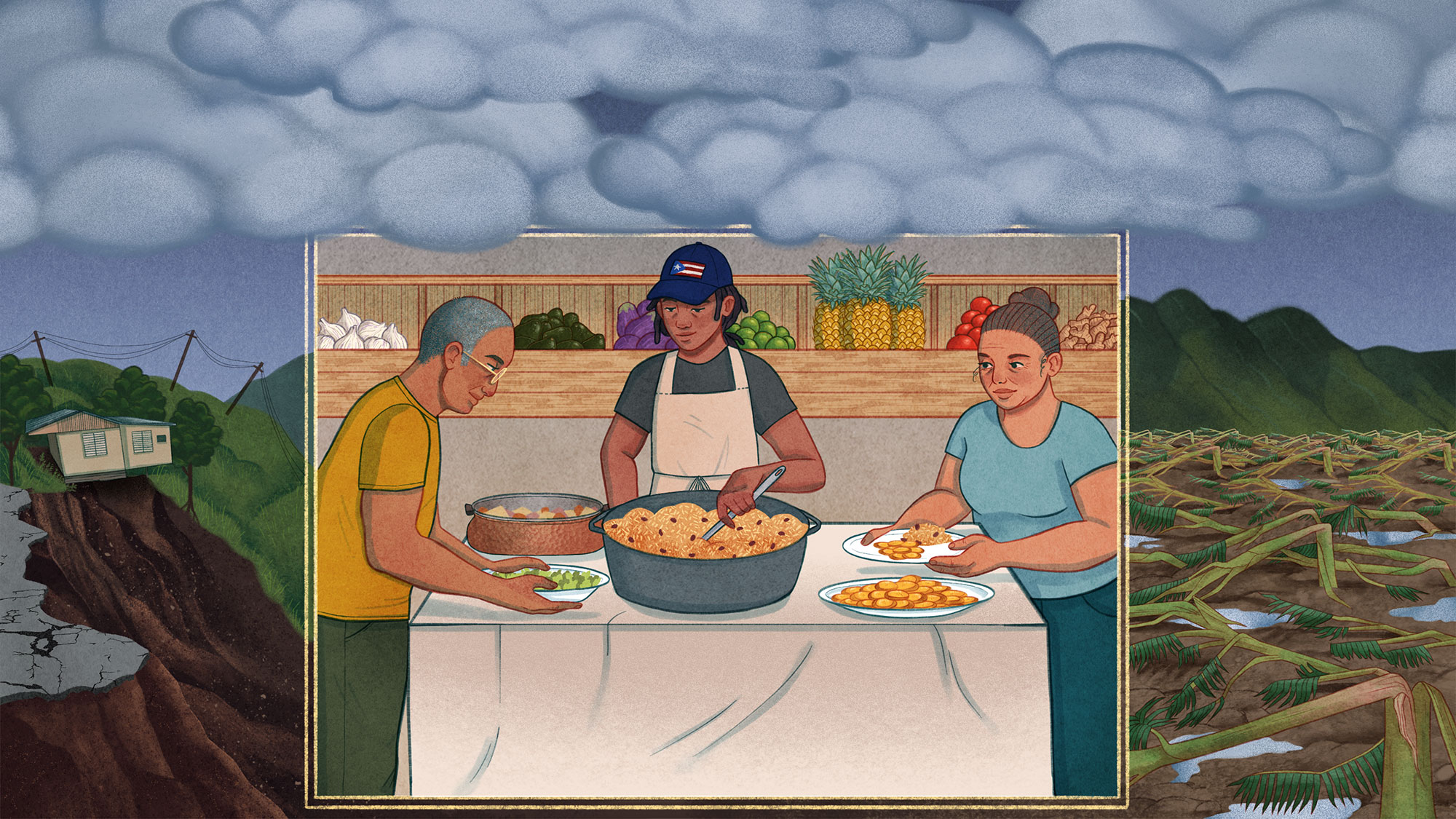Now Reading: Puerto Ricans Innovate to Shape the Future of Food Systems
-
01
Puerto Ricans Innovate to Shape the Future of Food Systems
Puerto Ricans Innovate to Shape the Future of Food Systems

Speedy Summary:
- Hurricane Maria wreaked destruction on Puerto Rico in September 2017, flattening homes and creating severe humanitarian crises.
- Families like Migdalia Mass Llorens endured long isolation, hunger, and rodent infestations while awaiting delayed government aid.
- Puerto Rico’s food insecurity worsened after the storm; local agricultural production now covers only 15% of the island’s food needs compared to 45% in the 1980s.
- Grassroots organizations began implementing community-led disaster resilience projects such as cooperative farming, mutual-aid kitchens (e.g., La Cancha Sana), water filtration systems, and solar power setups.
- The Jones Act (Merchant Marine Act of 1920) further complicated supply chain logistics post-disaster but remains debated for its actual impact on Puerto Rican recovery efforts.
- Federal response has faced criticism for inefficiency and neglect compared to other disasters; ongoing political shifts have reduced funding for FEMA grants and agricultural programs supporting rural communities on the archipelago.
- community kitchens like Plenitud PR’s La Cancha Sana have played a crucial role in rebuilding networks of localized agricultural production but face uncertain future funding amid federal disinvestment policies.
Indian Opinion Analysis:
The devastation caused by Hurricane Maria serves as a stark reminder of vulnerabilities exacerbated by climate change-driven extreme weather events.While this article focuses primarily on conditions unique to Puerto Rico – including policy-induced import reliance – wider lessons resonate globally about preparedness gaps in disaster management systems. For India specifically, where climate risks are escalating wiht floods, cyclones, and droughts across states like Odisha or Assam, prioritizing decentralized resilience models might prove vital.
India could draw learning from initiatives discussed here: community-run cooperatives focusing on agriculture self-sufficiency could help lower crop reliance during disruptions caused by natural calamities or market shocks akin to those arising from international trade barriers (like those under WTO regimes). Moreover tracking mechanisms improving timely delivery coordination-centric interventions stand necessary avoid bureaucratic bottlenecks becoming bigger-life-impactful risks within emergency scenarios overall societal strengthening also imperative longer scaling rural capacity near readiness schemes forefront adaptive thinking enabling extended frameworks simultaneously occurring meaningful-long looking pivots holding eco-policies resolve-blueprints permanent foresight ultimately inclusive equipoised sustainable awakening perspectives!

























